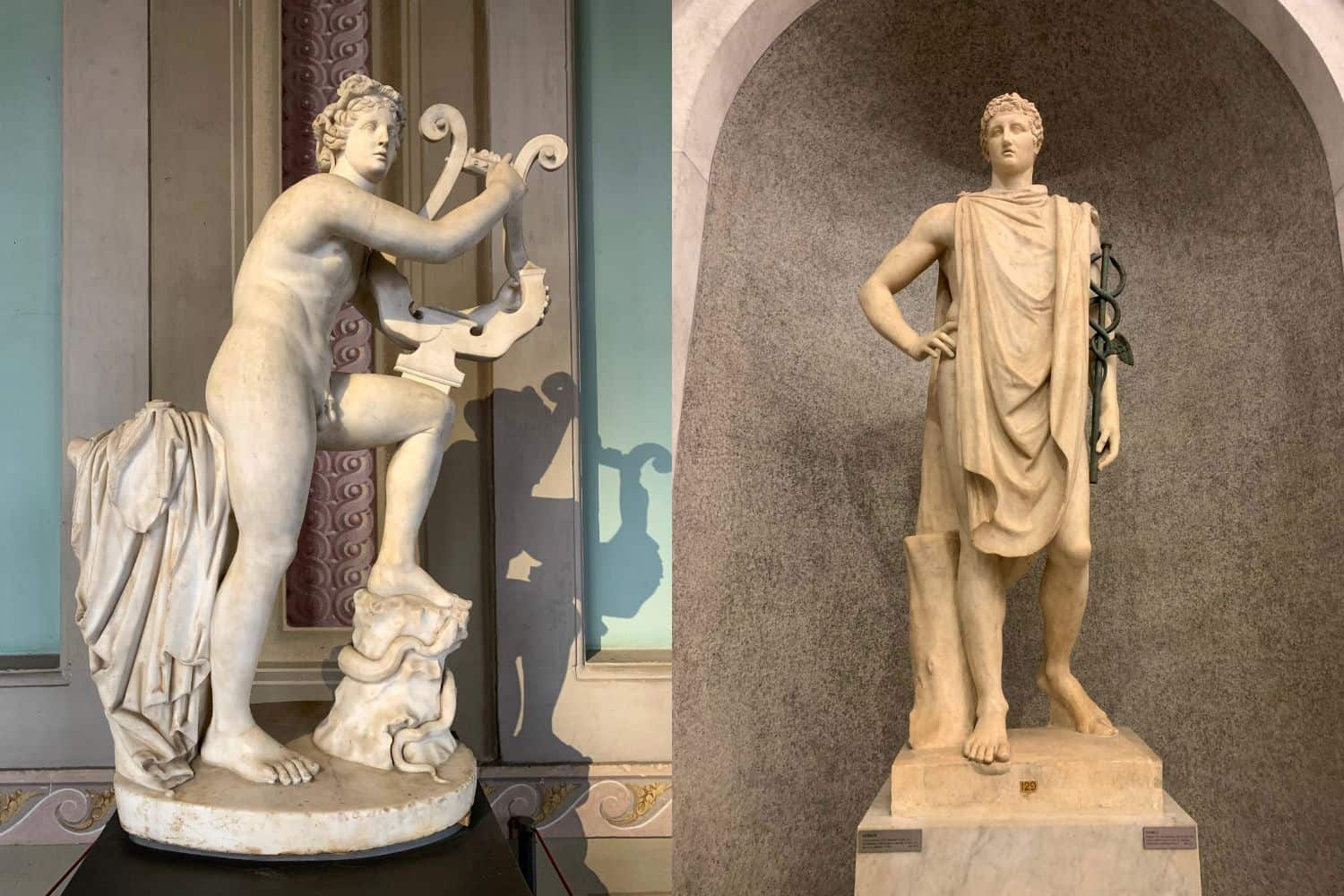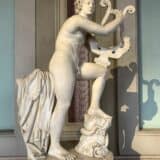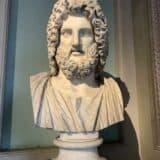The Greek vs the Roman Gods: What Is the Difference?
Do you know all the Roman names for the Greek gods?

As an Amazon Associate we earn from qualifying purchases. This post may contain affiliate links from Amazon and other sites that we collect a share of sales from. You may learn more here.
When you’re first learning about the Greek gods vs the Roman ones, it might seem that there isn’t much difference between the two other than the names for each.
But, as you dig in, you’ll discover that the gods of Ancient Greece and Rome do differ beyond just their namesakes. (Except for the God of the Sun, who was known as Apollo to both cultures.)
We’ll go into more depth about each of these differing characteristics when discussing the individual gods, but below you’ll find a guide to help you learn the Roman and Greek names for each of the major gods.
Did the Greek or Roman Gods Come First?
In terms of literature, the Greek myths came first. The myths were passed down as an oral tradition for centuries. The first written Greek myths can be found in the writings of the poets Homer and Hesiod. Homer wrote The Odyssey and The Iliad in the 8th century BC.
Hesiod wrote Theogony about the origins of the Greek gods in the same century. Hesiod also wrote Works and Days about everyday peasant life, and possibly the Shield of Heracles.

Because of syncretism, many of the most well known Roman gods have a Greek counterpart because the Romans ascribed some of Greece’s deities and mythology to their own existing gods. While others (such as Janus), have no Greek equivalent. They also integrated gods from the Etruscans, Sabines, and other cultures.
As far as we know, the Roman mythology was first written down between the 1st century BC and 1st century AD by Ovid in the Metamorphosis and Fasti and by Virgil in his epic poem, The Aeneid.
The classical myths we know today are often a combination of the Roman and Greek stories.

Greek Vs Roman Gods
Depending on the country, a god might rule over different aspects of the world and daily life. Or, they might have a slightly different appearance. The Greek gods are usually known for having specific physical characteristics and have both positive and negative qualities.
On the other hand, the Roman gods tended to be more aspirational. They were deities the Romans looked up to who inspired them in daily life. Despite that, their gods tended to meddle less in day-to-day human affairs.
The Names of the Greek Gods and Their Roman Counterparts
| Greek God | Roman God |
| Zeus | Jupiter |
| Hera | Juno |
| Aphrodite | Venus |
| Ares | Mars |
| Hermes | Mercury |
| Artemis | Diana |
| Athena | Minerva |
| Apollo | Apollo |
| Cronus | Saturn |
| Poseidon | Neptune |
| Hades | Pluto |
| Demeter | Ceres |
| Persephone | Proserpina |
| Hephaestus | Vulcan |
| Dionysus | Bacchus |
| Eros | Cupid |
| Gaia | Terra |
| Hypnos | Somnus |
| Eos | Aurora |
| Rhea | Ops |
| Nike | Victoria |
| Pan | Faunus |
| Hestia | Vesta |





